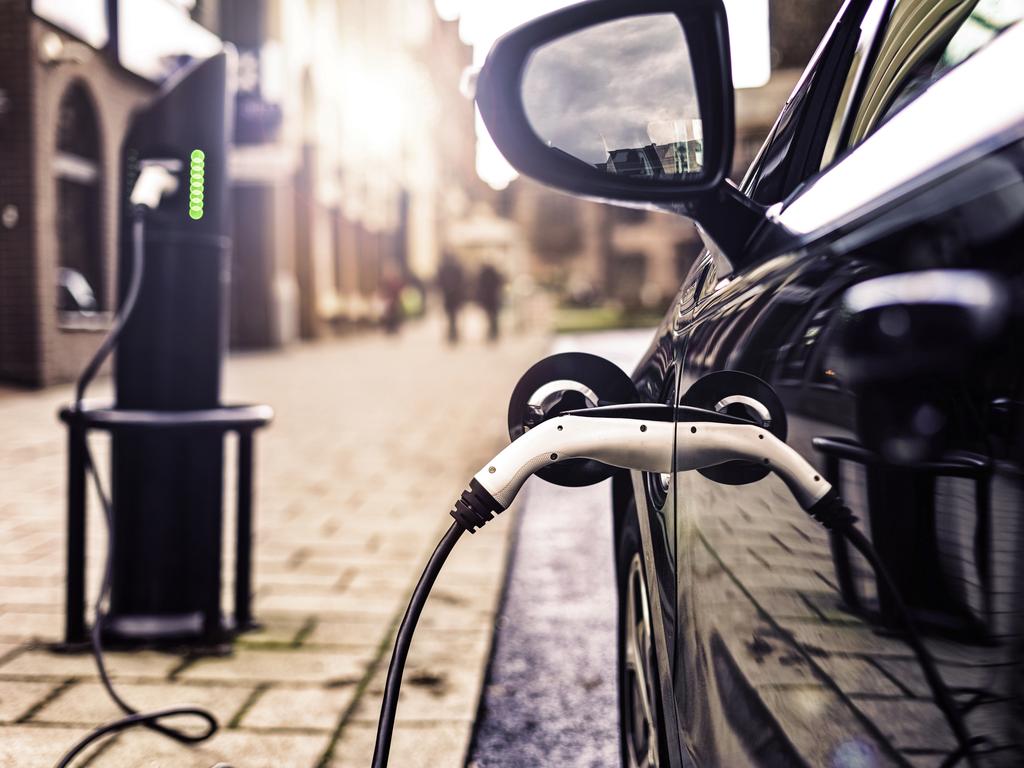States plug in to electric vehicle tax switch
NSW will strongly consider the introduction of an electric vehicle tax similar to a scheme proposed by South Australia.

The NSW government will strongly consider the introduction of an electric vehicle tax similar to a scheme proposed by South Australia this week, with Treasurer Dominic Perrottet looking to introduce a user-charge policy to cabinet within the next year.
Mr Perrottet will not introduce an electric vehicle tax in next week’s state budget but is continuing discussions with interstate counterparts about the design of a user charge that could be taken up nationally for electric vehicles.
“There is no doubt that as we increasingly transition to electric vehicles, we need to look at how all motorists pay a fair and equitable share for road usage,” he said.
“You don’t want to stifle new technology, but on the other hand it’s hardly fair for tradies in utes to pay a tax that someone who can afford a $100,000 hi-tech car does not ... it’s something that I’d obviously want to take to cabinet within the next 12 months.”
Electric vehicles currently comprise about 0.6 per cent of all car sales in Australia, according to the Electric Vehicle Council, in part because of their cost, but also a lack of tax incentives available in overseas markets.
The need for a tax was recommended by a federal financial review commissioned by Mr Perrottet last year. It said a “fair road user charging scheme” would be needed as cars became more efficient and more drivers took up electric vehicles.
Currently, road users pay a tax through an excise on fuel consumption, a charge pooled into consolidated revenue but ostensibly designed to pay for road maintenance, upgrades and other traffic-related costs.
“Under the commonwealth government’s fuel excise scheme, drivers of older or larger vehicles with higher fuel consumption pay more per kilometre to use the same stretch of road as drivers of newer, smaller, more fuel-efficient vehicles,” the review found. “Further, electric vehicle drivers use the same road at very little cost.”
Electric vehicle owners do not use fuel and therefore do not contribute in the form of a tax for their use of the road.
Industry lobbyists hold concerns that any such tax applied to the vehicles, introduced too early, will affect their uptake and popularity in the Australian market.
Some government ministers who spoke to The Australian said they were generally supportive of an electric vehicle tax so long as it was introduced at a time when they comprised a higher share of the market in Australia.
That said, introducing the tax early was seen as preferable because the initial shock would be absorbed by higher-income road users, who tended to be wealthy enough to afford the vehicles. “If you put it in now, rich people won’t complain too much,” one said.
The forecast for the Australian market is for significant increases in electric vehicle availability over the coming decade and beyond, as vehicle manufacturers shift production and jurisdictions move to mandate their use.
Behyad Jafari, chief executive of the Electric Vehicle Council, said the introduction of a tax would be a poor idea while the popularity of the cars remained nascent. He said to stimulate their growth, government should consider incentives of the kind available across the US, where drivers are given between $10,000 and $25,000 in tax breaks to encourage usage.
“This is really putting the cart before the horse. Governments should wait until they make up a quarter of our cars before implementing these kinds of taxes,” he said. “Don’t do it when it’s expensive and no one’s driving them.”
The South Australian scheme has yet to determine the distance-based charge it intends to apply but it is forecast to raise about $1m a year, starting in July 2021.






To join the conversation, please log in. Don't have an account? Register
Join the conversation, you are commenting as Logout